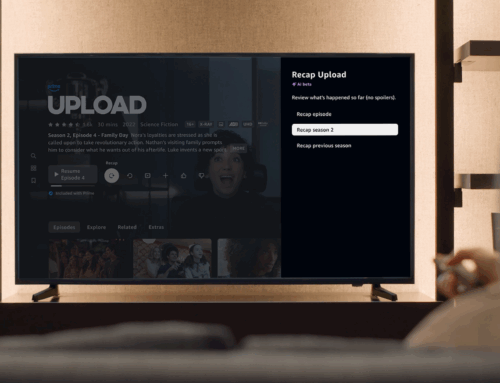Minnesota Cannabis Regulators Broke Law When Canceling Social Equity Lottery, Judge Rules
April 7, 2025
The Minnesota Office of Cannabis Management (OCM) must hold a license preapproval lottery for 648 social equity applicants hoping to enter the state’s forthcoming adult-use marketplace, a judge ordered on April 4.
Minnesota Second Judicial District Court Judge Stephen L. Smith ruled that the cannabis regulatory authority has a legal duty that the law “absolutely requires” and that the OCM broke that duty when it canceled the license preapproval process in December.
The order comes nearly two years after Minnesota Gov. Tim Walz signed legislation to legalize adult-use cannabis in the North Star State on May 30, 2023. The OCM’s initial plan was to launch licensed dispensary sales in early 2025, but that won’t be happening.
“Given the purpose of the statute and the Legislature’s unambiguous expression of how that purpose shall be realized, the court finds OCM is required to conduct a social equity lottery for the 648 preapproved applicants,” Smith wrote in the April 4 order. “It has failed to do that and has expressed publicly that it does not intend to conduct a separate social equity lottery.”
The state’s cannabis regulators had intended to conduct the preapproval lottery on Nov. 26, 2024, to provide the awardees the advantage of moving forward on securing the investments and real estate needed to launch their cannabis businesses ahead of non-social equity operators.
However, the OCM abandoned that plan after Smith ordered a stay the day before the planned lottery. The stay order was related to the OCM disqualifying roughly two-thirds of the 1,817 social equity license applicants for the early lottery.
The state regulators indicated they rejected the 1,169 applicants for the preapproval lottery to prevent individuals from gaming the system. Applicants who didn’t intend to pursue a legitimate business but instead wanted to sell off their licenses, if awarded, would undermine the intention of an equitable marketplace, according to the OCM.
However, some of the disqualified applicants sued the OCM, claiming they were wrongly left out of the office’s preapproved lottery process.
“I am a legitimate applicant, not a straw buyer,” Cristina Aranguiz, a first-generation Latina entrepreneur, told Minnesota Public Radio in November.
When Smith sided with the rejected applicants and stayed the lottery in late November, the OCM announced two weeks later that it canceled the social equity lottery altogether and was going to move forward on a standard licensing cycle for all applicants—social equity and general—to avoid “further” delay” in rolling out the adult-use program. Under the new plan, the standard social equity lottery was moved to mid-2025.
“We remain committed to launching an equitable, sustainable and responsible cannabis marketplace in Minnesota,” former OCM Interim Director Charlene Briner said at the time. A week later, Briner said she was still “optimistic” about a 2025 adult-use sales launch.
A few weeks later, in early January, Briner resigned after indicating that being a cannabis regulator was never her dream job. Eric Taubel, the OCM’s general counsel for the previous year, picked up where Briner left off in the interim director role.
However, Minnesota still faces potentially the third-longest adult-use rollout in the nation after Vermont, 1,713 days, and Maine, 1,431 days.
On April 4, Smith ordered an alternative writ of mandamus directing the OCM to “immediately conduct” the preapproval lottery per state law because the qualified applicants for the lottery “suffered a public wrong” as a result of the cancellation. The judge also ruled that “there is no adequate legal remedy to address the OCM’s failure to perform its legal duty.”
While Smith found that the OCM is required to conduct the social equity lottery for the “648 preapproved applicants,” this ruling directly collides with his stay from November, when his order prevented the OCM from conducting the lottery for the 648 applicants at the expense of the 1,169 rejected applicants.
Taubel released a statement about Smith’s most recent order on April 6, as first reported by The Minnesota Star Tribune.
“The judge’s order allows the Office of Cannabis Management to seek dismissal of the case on an expedited basis, which we intend to do,” Taubel said. “With the adoption of the rules governing Minnesota’s cannabis industry imminent, OCM expects to be able to begin issuing licenses to qualified social equity applicants in a matter of weeks. There are currently more than a thousand qualified applicants for social equity licenses who are first in line to receive business licenses, and OCM has been clear since November that any delay to the lottery would prove fatal to the preapproval process. At this stage, additional litigation and delays serve no one. OCM looks forward to continuing its work to get licenses out the door and launching the market as soon as possible.”
The OCM opened a license application window for social equity and non-social equity applicants from Feb. 18 to March 14. The office intends to hold lotteries for those application windows beginning next month.
Smith acknowledged in his April 4 order that legislative intent was to “displace the illicit cannabis market with a legitimate one and to provide historically disadvantaged groups with an opportunity to ready their capacity to operate a cannabis-related business.”
The OCM’s preapproval process was intended to narrow down the qualified social equity applicant pool to 282 awardees, including 100 vertically integrated microbusiness, 25 vertically integrated “mezzobusiness” (medium) licenses, 13 cultivator licenses and 38 dispensary licenses, among other permit types.
In attempting to provide these awardees a head start through the originally planned preapproval lottery in November, the OCM’s initial plan was to allow social equity cultivators to begin growing cannabis for the adult-use market by the end of 2024.
Despite derailing this plan in his November stay, Smith wrote in his April 4 order that forgoing the preapproval lottery altogether hurts the 648 qualified applicants.
“While [the] social equity lottery offers no guarantees, as discussed above, cancelling the lottery effectively casts aside the significant time and investment 648 qualified applicants put into shoring up their capacity to hit the ground running as a licensee,” the judge wrote. “The Legislature vested OCM with the discretion to create a preapproval process for a reason. It understood that allowing disadvantaged groups to build their capacity early on in the licensing process would enhance their ability to operate a successful business. That advantage is lost if there is no social equity lottery.”
Search
RECENT PRESS RELEASES
Related Post




